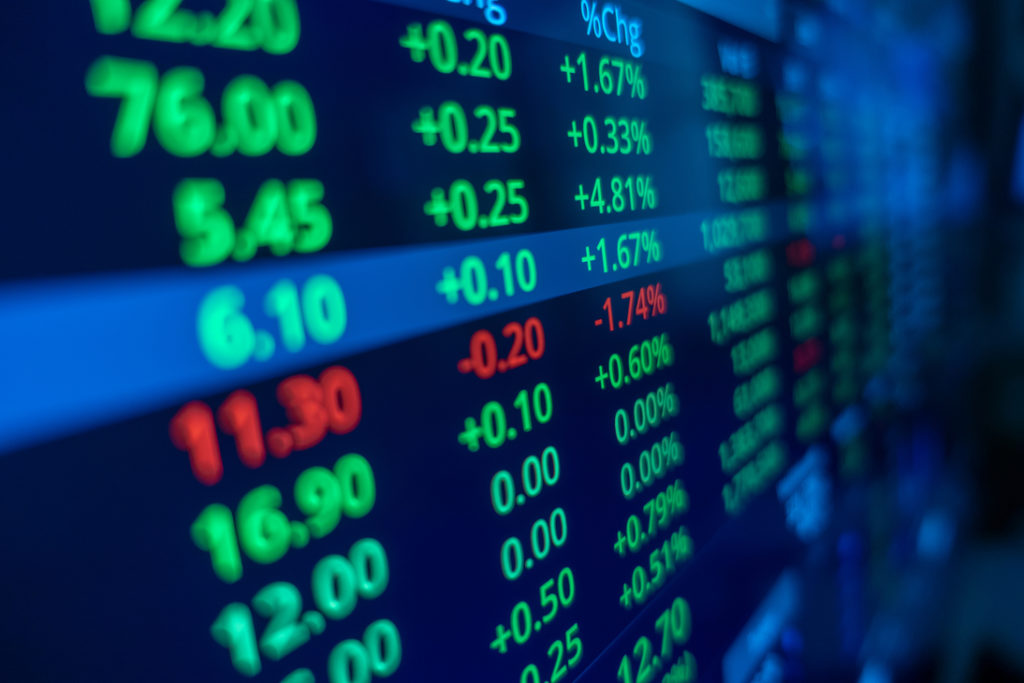
As every good trader will tell you, successful trading starts with good planning, and good planning starts with understanding how the world around us affects market positions. From supply and demand to market sentiment and unexpected events, there are countless factors that can positively or negatively impact the stock market.
KNOWLEDGE IS POWER
When it comes to investing, CAPEX.com, the leading global multi-licensed broker operated by Key Way Markets Ltd, always applies the mantra of knowledge is power. In doing so, CAPEX.com is changing the way people in the Middle East invest and making online trading more accessible, transparent, and secure in the region.
Through the CAPEX Academy, its team is educating new investors and helping them to form a comprehensive understanding of the multitude of factors that affect the market, thus equipping them with the knowledge they need to make better-informed trading decisions. With so many events taking place and the markets changing every day, the more you know about factors affecting market positions, the more empowered you will become as an investor.
‘Traders’ psychology should be based on logic and reasoning. Investing in the financial markets with no knowledge and proper understanding will more likely form unpleasant results. However, with the appropriate education, learning materials, and sharpening one’s trading skills on a demo account, traders will have more chances for a rewarding investing experience in the financial markets. “Traders should always be analytical and follow what the charts are trying to indicate and anticipate the next move and predict trends based on the factors moving the market.”- Madalina Rotaru – CEO, Key Way Markets Ltd, ADGM
SUPPLY & DEMAND
In commodity trading, for example, two important factors to consider are supply and demand, which can impact commodity prices. Prices can shift dramatically from one direction to the other due to the sudden changes in the supply and demand, but, at the same time, volatility should be handled with care, since it can lead to increased losses.
By trading leveraged products on commodities, you don’t have to own any of these assets physically: you trade their price movements. Whenever supply and demand balance out, the prices of commodities remain stable. However, when the market anticipates or expects a supply issue (as a result of production cuts, natural disasters, or major world events) or an increase in demand (as a result of population growth or expanding economy), prices might vary considerably.
NEWS & EVENTS
Certain events can cause price fluctuations and momentum swings in the market, which is why ‘trading the news’ has become a common form of fundamental trading. This involves making good use of market news and announcements (whether recurring or one-off) for opening short or long positions. Nevertheless, CAPEX.com analysts recommend carefully picking what kind of news to follow, depending on your preferences and knowledge, as some can be more difficult to approach than others.

When trading the news, remember that global economic variables act as catalysts that cause market movements. Financial news events lead to price movements, and they are the ones worth monitoring. You should always try to make rational trading decisions, considering your risk tolerance and goals – a strategy that can work better for unexpected events that shake the markets. With that in mind, you should try to learn all the facts before making a trading decision. For example, if a company slashes its dividends, it can be a cost-saving measure that lifts stock prices, not vice versa. That is why it is vital to keep your eyes on the big picture.
MARKET SENTIMENT
Market sentiment is another influential factor that contributes to shifts in market positions. Market sentiment does not always rely on fundamental analysis (economic or political news), and, when trading, it is important to keep in mind that emotion can be a significant market driver. A financial market reflects the mix of feelings of everyone involved. It shows what the majority feels is going to happen and defines the general attitude of investors toward a particular financial market or instrument. Consequently, rising prices are representative of bullish market sentiment, while falling prices indicate a bearish market sentiment.
There is no way you can dictate how the markets should behave, but what you could do is trade according to what is happening to them – using the market sentiment approach and deciding for yourself if you want to go with the flow or not. If you rely too much on market sentiment, you could easily find yourself buying high because everyone else is doing it and selling low when the market buzz fades out. Instead, try and adapt your strategies to what might be going on in the markets and combine the market sentiment strategy with technical and fundamental techniques. In doing so, you could potentially discover even more trading ideas and possibilities. The sky is the limit!
Find out more at ae.capex.com and start your online trading journey












